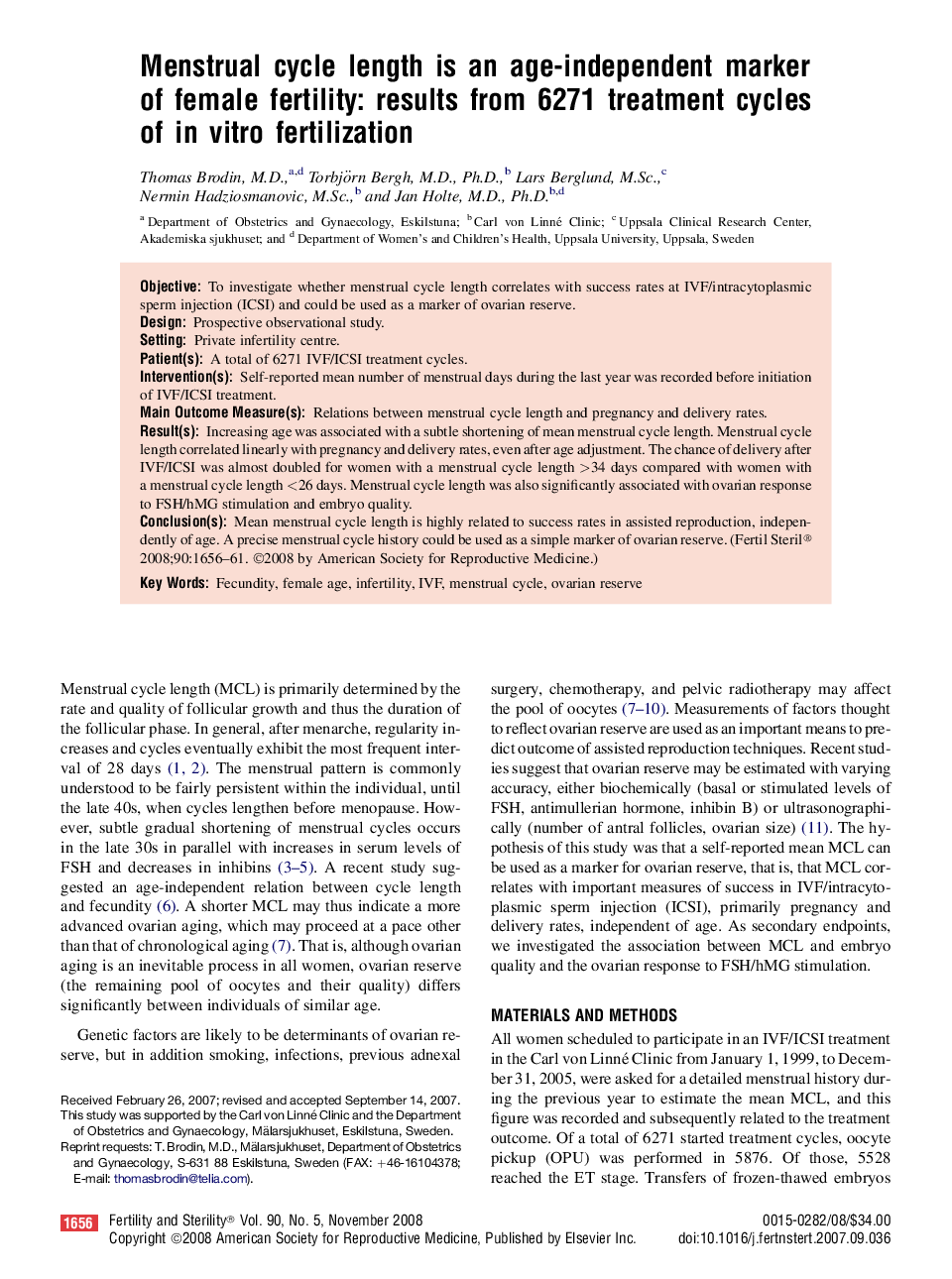| Article ID | Journal | Published Year | Pages | File Type |
|---|---|---|---|---|
| 3941604 | Fertility and Sterility | 2008 | 6 Pages |
ObjectiveTo investigate whether menstrual cycle length correlates with success rates at IVF/intracytoplasmic sperm injection (ICSI) and could be used as a marker of ovarian reserve.DesignProspective observational study.SettingPrivate infertility centre.Patient(s)A total of 6271 IVF/ICSI treatment cycles.Intervention(s)Self-reported mean number of menstrual days during the last year was recorded before initiation of IVF/ICSI treatment.Main Outcome Measure(s)Relations between menstrual cycle length and pregnancy and delivery rates.Result(s)Increasing age was associated with a subtle shortening of mean menstrual cycle length. Menstrual cycle length correlated linearly with pregnancy and delivery rates, even after age adjustment. The chance of delivery after IVF/ICSI was almost doubled for women with a menstrual cycle length >34 days compared with women with a menstrual cycle length <26 days. Menstrual cycle length was also significantly associated with ovarian response to FSH/hMG stimulation and embryo quality.Conclusion(s)Mean menstrual cycle length is highly related to success rates in assisted reproduction, independently of age. A precise menstrual cycle history could be used as a simple marker of ovarian reserve.
